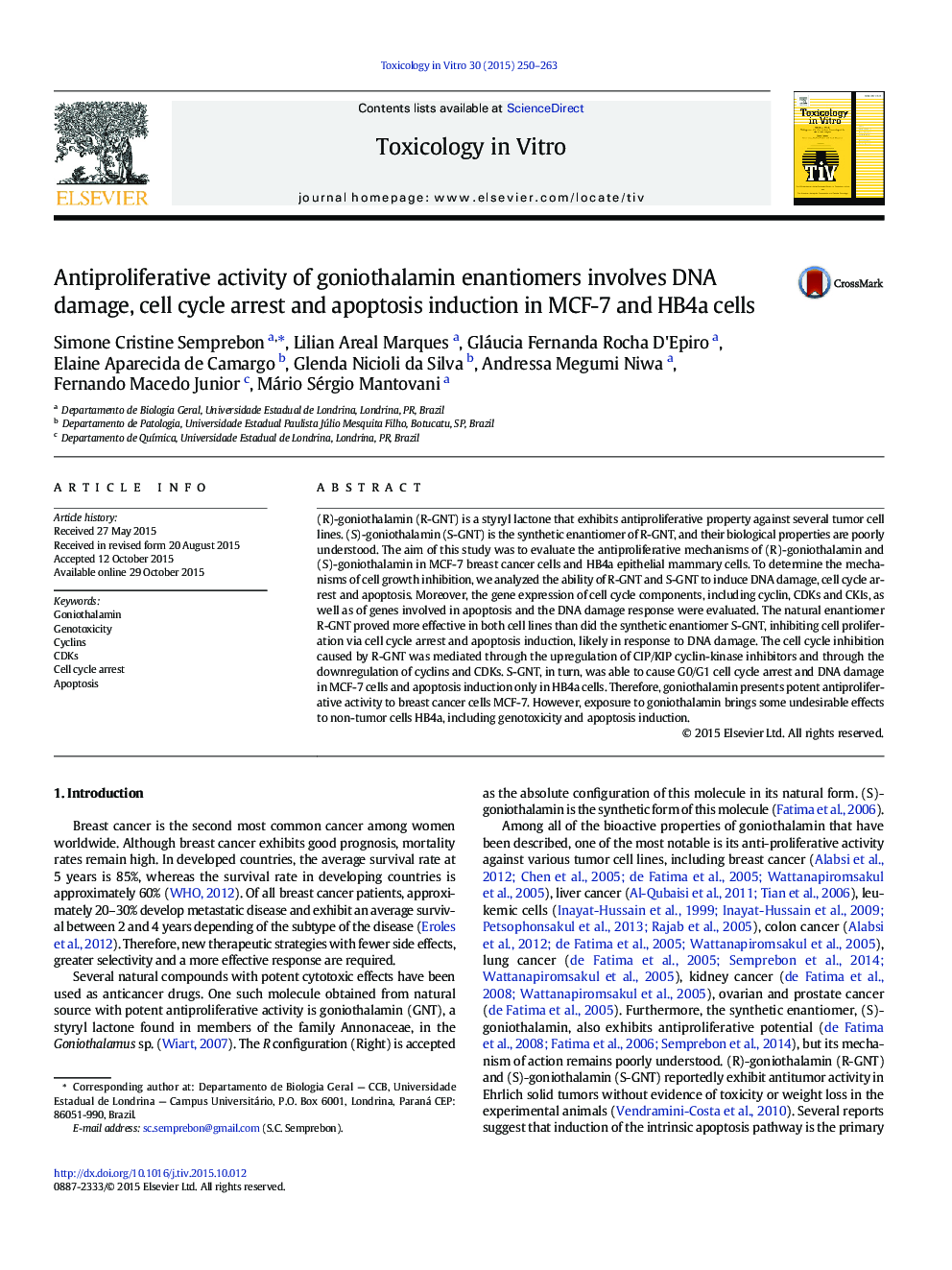| کد مقاله | کد نشریه | سال انتشار | مقاله انگلیسی | نسخه تمام متن |
|---|---|---|---|---|
| 2602413 | 1562715 | 2015 | 14 صفحه PDF | دانلود رایگان |

• R- and S-GNT exhibit antiproliferative activity in MCF-7 and HB4a cells.
• R-GNT proved most effective in both cell lines relative to S-GNT.
• Goniothalamin induces DNA damage, cell cycle arrest and apoptosis.
• R-GNT induces the downregulation of cyclins and CDK genes and the upregulation of CDKN1A.
(R)-goniothalamin (R-GNT) is a styryl lactone that exhibits antiproliferative property against several tumor cell lines. (S)-goniothalamin (S-GNT) is the synthetic enantiomer of R-GNT, and their biological properties are poorly understood. The aim of this study was to evaluate the antiproliferative mechanisms of (R)-goniothalamin and (S)-goniothalamin in MCF-7 breast cancer cells and HB4a epithelial mammary cells. To determine the mechanisms of cell growth inhibition, we analyzed the ability of R-GNT and S-GNT to induce DNA damage, cell cycle arrest and apoptosis. Moreover, the gene expression of cell cycle components, including cyclin, CDKs and CKIs, as well as of genes involved in apoptosis and the DNA damage response were evaluated. The natural enantiomer R-GNT proved more effective in both cell lines than did the synthetic enantiomer S-GNT, inhibiting cell proliferation via cell cycle arrest and apoptosis induction, likely in response to DNA damage. The cell cycle inhibition caused by R-GNT was mediated through the upregulation of CIP/KIP cyclin-kinase inhibitors and through the downregulation of cyclins and CDKs. S-GNT, in turn, was able to cause G0/G1 cell cycle arrest and DNA damage in MCF-7 cells and apoptosis induction only in HB4a cells. Therefore, goniothalamin presents potent antiproliferative activity to breast cancer cells MCF-7. However, exposure to goniothalamin brings some undesirable effects to non-tumor cells HB4a, including genotoxicity and apoptosis induction.
Journal: Toxicology in Vitro - Volume 30, Issue 1, Part B, 25 December 2015, Pages 250–263